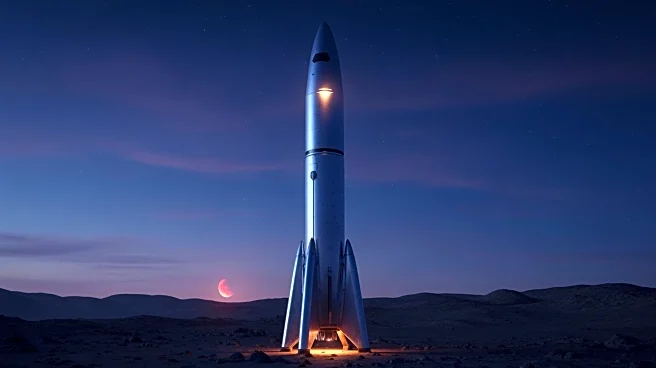What's Happening?
Blue Origin has achieved a significant milestone by successfully landing its rocket's first stage on a floating platform after launching from Cape Canaveral. This mission included the deployment of two satellites destined for Mars, marking a step forward
in the company's space exploration efforts. The successful landing demonstrates Blue Origin's growing capabilities in reusable rocket technology, which is crucial for reducing costs and increasing the frequency of space missions.
Why It's Important?
The successful landing of Blue Origin's rocket is a pivotal development in the commercial space industry, highlighting the potential for more cost-effective and sustainable space travel. This achievement not only positions Blue Origin as a key player in the space sector but also contributes to the broader goal of Mars exploration. The ability to reuse rockets can significantly lower the financial barriers to space exploration, potentially accelerating scientific research and technological advancements related to Mars and beyond.
What's Next?
Blue Origin's successful landing paves the way for future missions, including more complex endeavors aimed at Mars and other celestial bodies. The company is likely to continue refining its technology to enhance reliability and efficiency. As Blue Origin progresses, it may face increased competition from other space companies, prompting further innovation and collaboration within the industry. The implications for international space exploration efforts are substantial, as reusable rocket technology could become a standard practice.
Beyond the Headlines
The advancement in reusable rocket technology raises ethical and environmental considerations, such as the impact of increased space travel on Earth's atmosphere and the potential for space debris. As the industry grows, regulatory frameworks may need to evolve to address these concerns, ensuring that space exploration is conducted responsibly and sustainably.
















